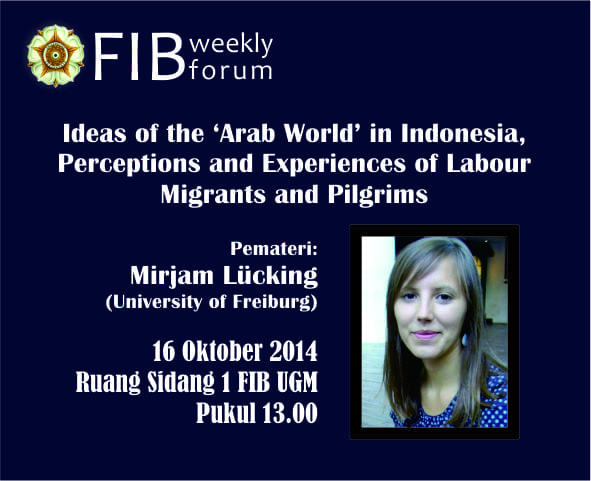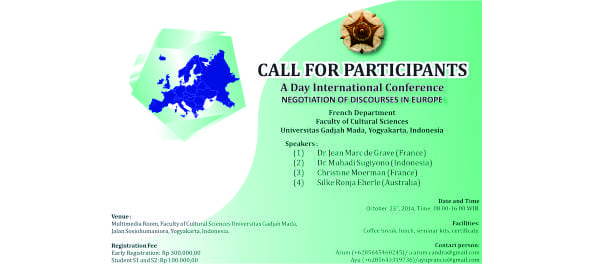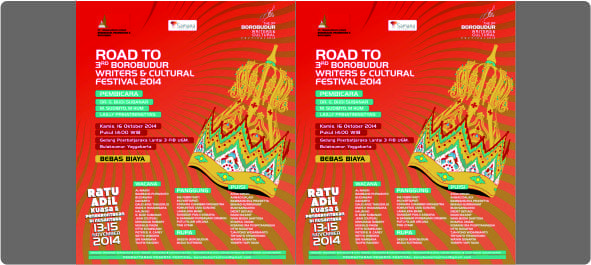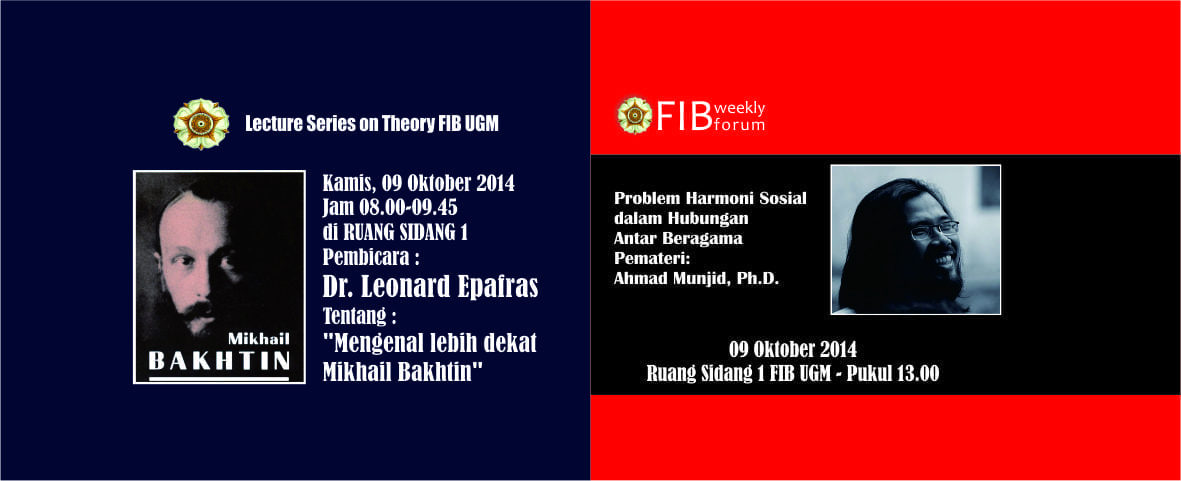16 Oktober 2014
Ruang Sidang 1 FIB UGM
Pukul 13.00
Pemateri:
Mirjam Lücking
(University of Freiburg)
Ideas of the ‘Arab World’ in Indonesia,Perceptions and Experiences of Labour Migrants and Pilgrims
Abstrak
Setting off from the assumption that the construction of ‘self’ and ‘other’ is a crucial element in the conception of identity, I discuss what role the imagination of the ‘Arab World’ plays for the Indonesian society today. In an increasingly globalized world mobility becomes an important source to generate knowledge about other regions and re-negotiations of morality. Thus, my research focuses on mobile groups, respectively pilgrims and labour migrants, that travel to the ‘Arab World’ and thereby enrich the process of imagining ‘self’ and ‘other’.
Naturally, Saudi Arabia is regarded as ‘holy land’ for Muslims and the pilgrimage to Mecca is central in many peoples’ life. Since waiting lists to join the hajj (major pilgrimage) have become long, travel agencies offer additional trips to the ‘Arab World’, combining the minor pilgrimage (umroh) with site trips to other places.
Besides this booming pilgrimage business and the positive connotations with the ‘Arab World’ being the centre of Islam, the experiences of Indonesian labour migrants (mainly domestic workers) draw a different picture of the region. They experience Arabic culture and customs from within private households and stay much longer than pilgrims. Reports about ill-treatment of domestic workers and human rights violations evoke a more critical view of the respective Arabic countries.
The different travel experiences of labour migrants and pilgrims and the retrospective reflections about it, mirror recent developments of changing ideas of morality and views of the world. By imagining the Arab ‘other’, the Indonesian travelers become more aware of their own identity. Yet, some elements of what is imagined to be Arabic culture are adopted. The journey abroad and the staging of ‘Arabness’ become social, economic and political capital. The research compares different negotiations of ‘Arabness’ and views on the ‘Arab World’ in the context of pilgrimage and labour migration in urban and rural settings in Yogyakarta, Magelang and Madura.





